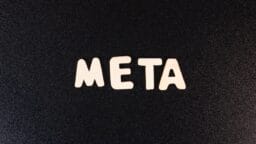The sterile glow of computer screens casts light on countless developers who struggle nightly with obstinate code. However, a new ally has emerged in their struggle. Google’s Jules AI coding agent has officially transitioned from its beta phase to full public availability. Announced at I/O 2025 and rigorously tested by developers since May, Jules now seamlessly integrates with GitHub, poised to revolutionize coding practices.
How Can Jules AI Elevate Developer Efficiency and Security?
Unlike conventional coding assistants, Jules functions asynchronously — a significant advancement in safety. Upon activation, it duplicates your database onto Google Cloud infrastructure, thus isolating all operations from live environments. This architecture mitigates the risk of catastrophic errors, such as unintended deletions — echoing a notorious incident where an AI tool obliterated an entire corporate database.
Google’s faith in Jules is profound. A company representative shared with TechCrunch that internal teams are actively employing Jules for production-level tasks.
“It transcends a mere assistant; it is evolving into a key development partner,” stated the source.
Developers maintain full authority, meticulously reviewing Jules’ output prior to merging changes — a precautionary measure against prompt injection assaults or faulty logic.
Diverse Plans for Varied Workflows
Jules presents tiered access options:
- Free Tier: 15 daily tasks, 3 concurrent operations
- AI Pro ($124.99/month): Increased task limits, priority queues
- Ultra ($199.99/month): Enterprise-grade concurrency, dedicated support
This effectively positions Jules amid Google’s existing offerings: Gemini’s conversational coding and Opal’s experimental “vibe-based” programming. Notably, Jules’ integration with GitHub facilitates collaborative efforts within pre-existing developer ecosystems.
The Competitive Advantage in AI-Driven Development
Although GitHub Copilot holds a commanding presence in the landscape, Jules’ asynchronous framework addresses burgeoning concerns over AI interference with critical infrastructures. Recent research by Forrester reveals that 68% of developers prioritize “non-invasive AI tools” when selecting assistants — a niche Jules aptly fills.
Early adopters report improvements of 30-40% in debugging speeds, yet emphasize the need for vigilance.
“Always scrutinize generated code,” advises lead engineer Maria Chen. “AI accelerates the development process, but human oversight is crucial to prevent disasters.”
Preparing Development Teams for the Future
Google’s investment underscores a more expansive shift towards AI-augmented engineering. With Jules now publicly accessible, developers benefit from a sandboxed collaborator that respects production environments. As coding transforms from an isolated craft to a synergistic human-AI partnership, tools like Jules have the potential to redefine industry benchmarks for safety and efficiency.
Google’s Jules AI merges innovation with caution — providing developers a formidable, secure collaborator that operates alongside them, not in lieu of them. Explore Jules’ free tier today to engage with the future of coding — responsibly.
FAQs
What distinguishes Jules from GitHub Copilot?
Jules operates asynchronously by cloning databases to Google Cloud, thereby isolating activities from live systems. In comparison, Copilot integrates directly into IDEs. Jules emphasizes safety, while Copilot focuses on immediacy.
Is Jules free to use?
Yes, a limited free tier facilitates 15 daily tasks. Paid plans (AI Pro: $124.99/month, Ultra: $199.99/month) provide access to elevated task volumes and priority processing.
Can Jules delete or corrupt my code?
No. Jules operates on cloned repositories, ensuring original code remains undisturbed. Modifications necessitate manual review and merging by developers.
Does Jules support languages beyond Python and JavaScript?
Currently, Jules excels in Python, Java, and Go. Google intends to introduce support for Rust and C++ by Q4 2025, as indicated during I/O 2025.
What is Jules’ impact on developer employment?
Jules automates repetitive tasks (debugging, boilerplate code), liberating developers for more intricate problem-solving — akin to how compilers revolutionized assembly programming.
Source link: Inews.zoombangla.com.






